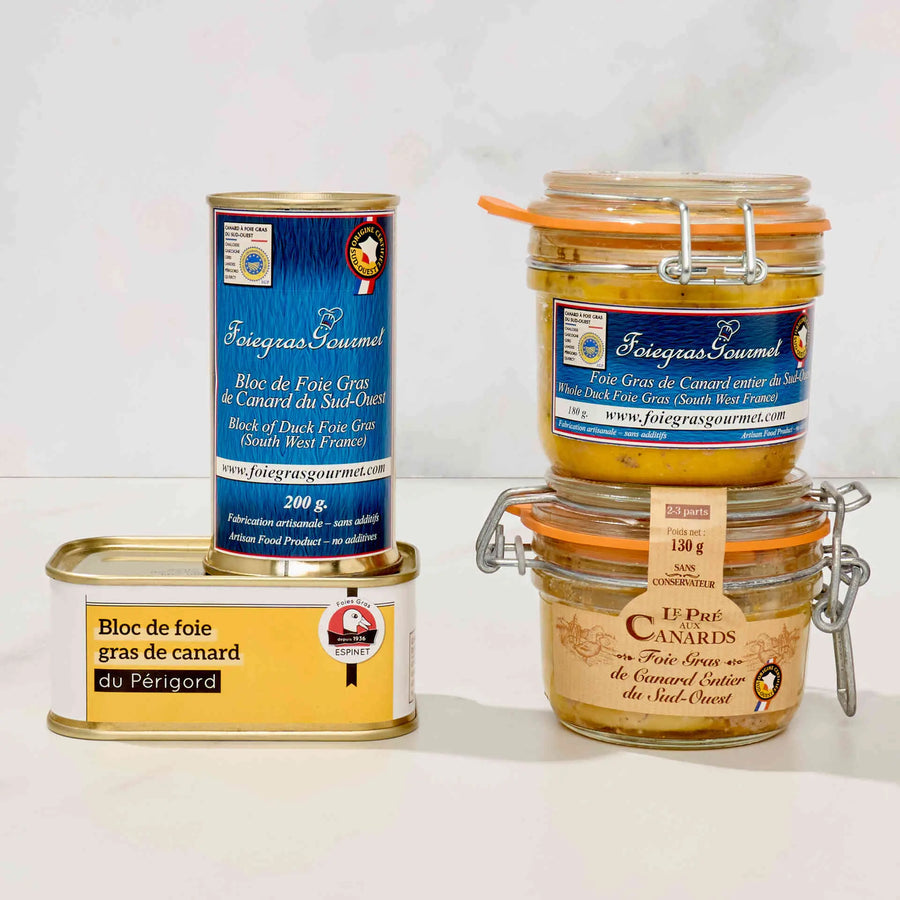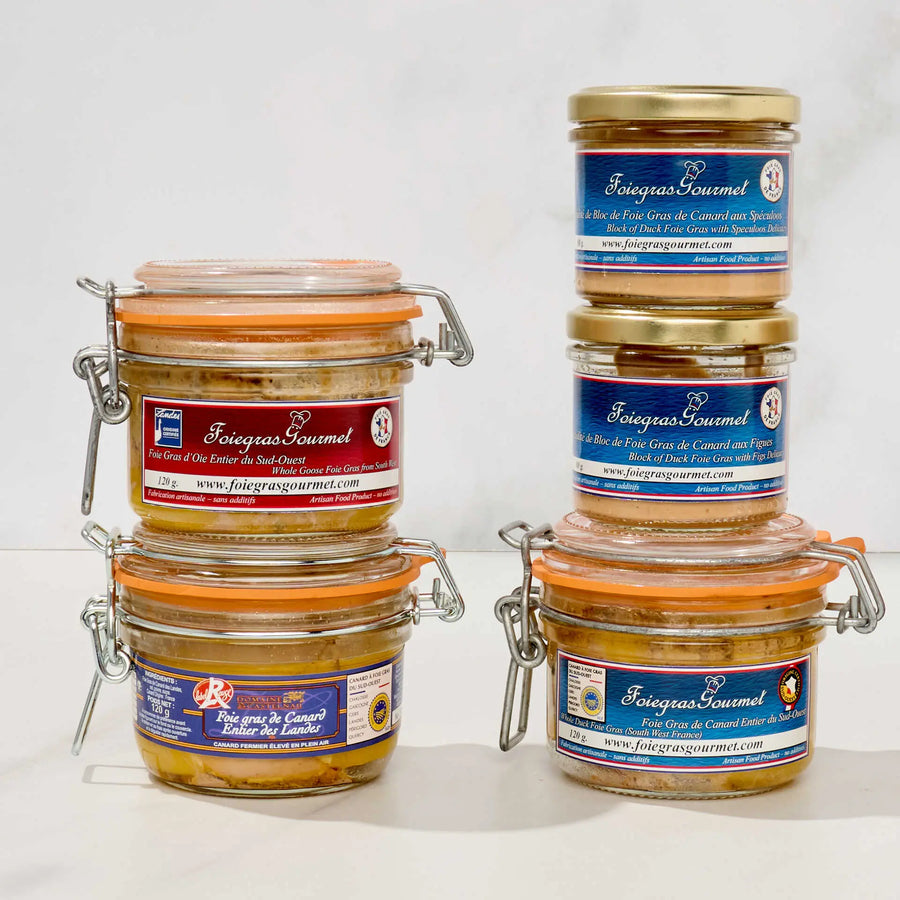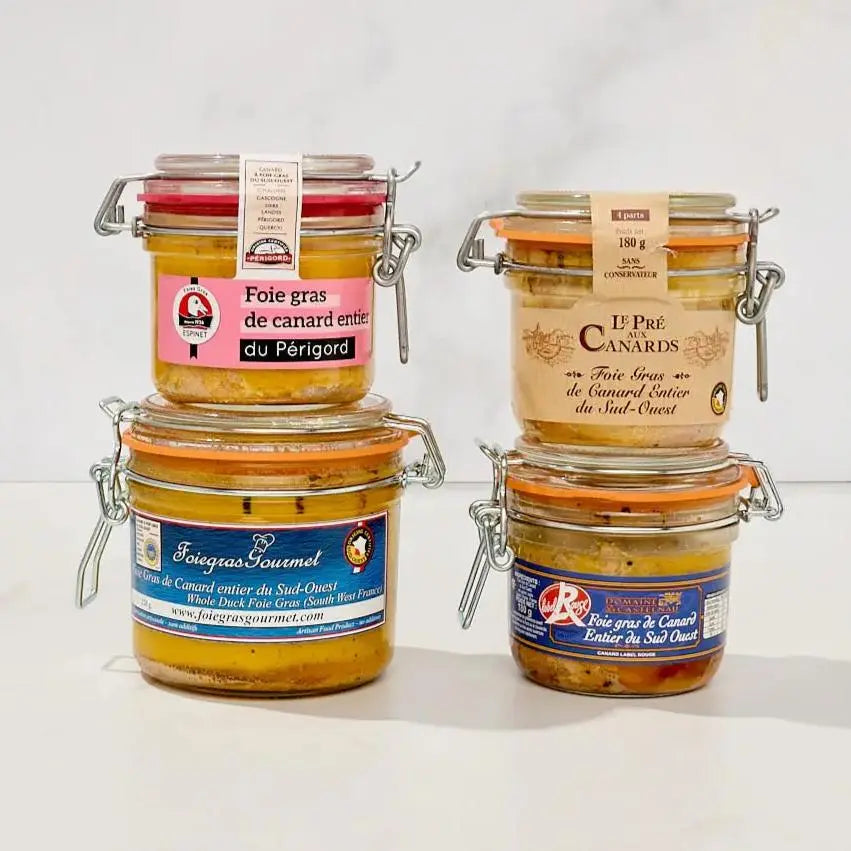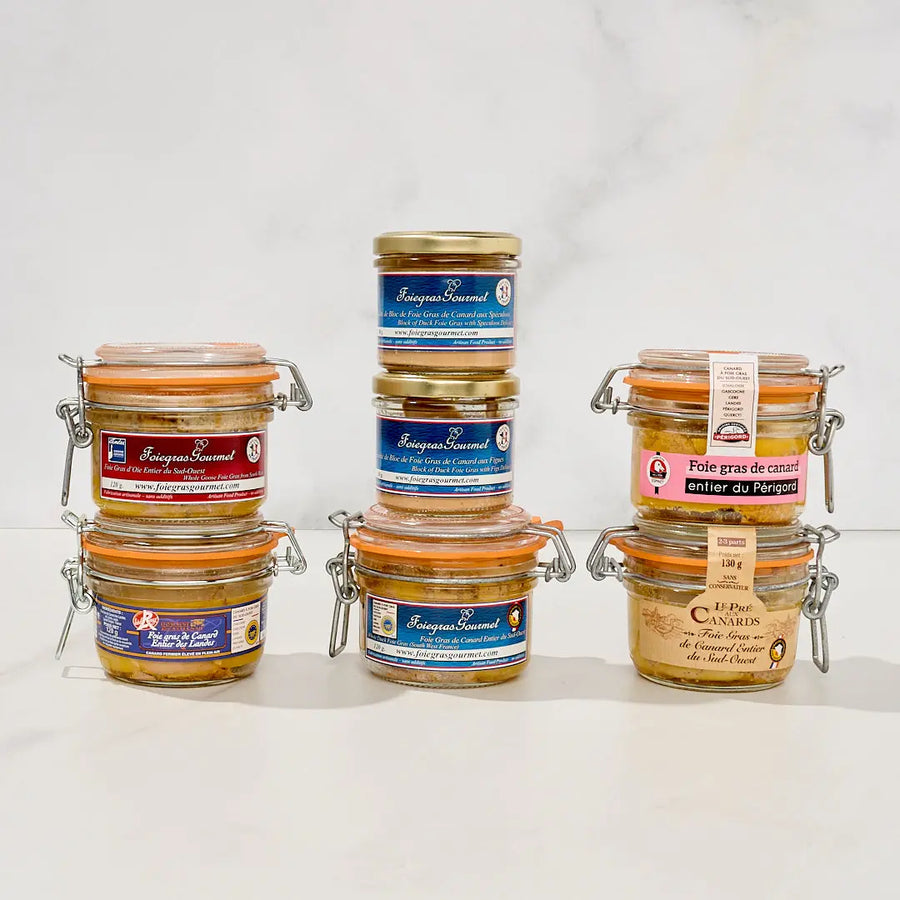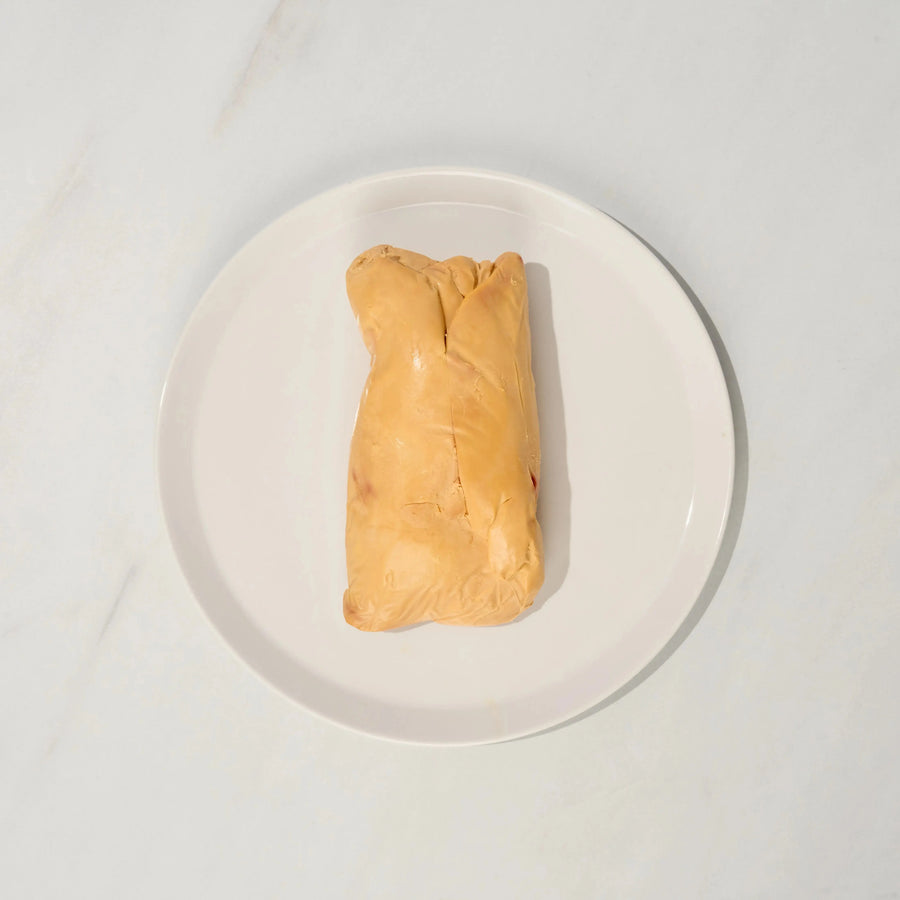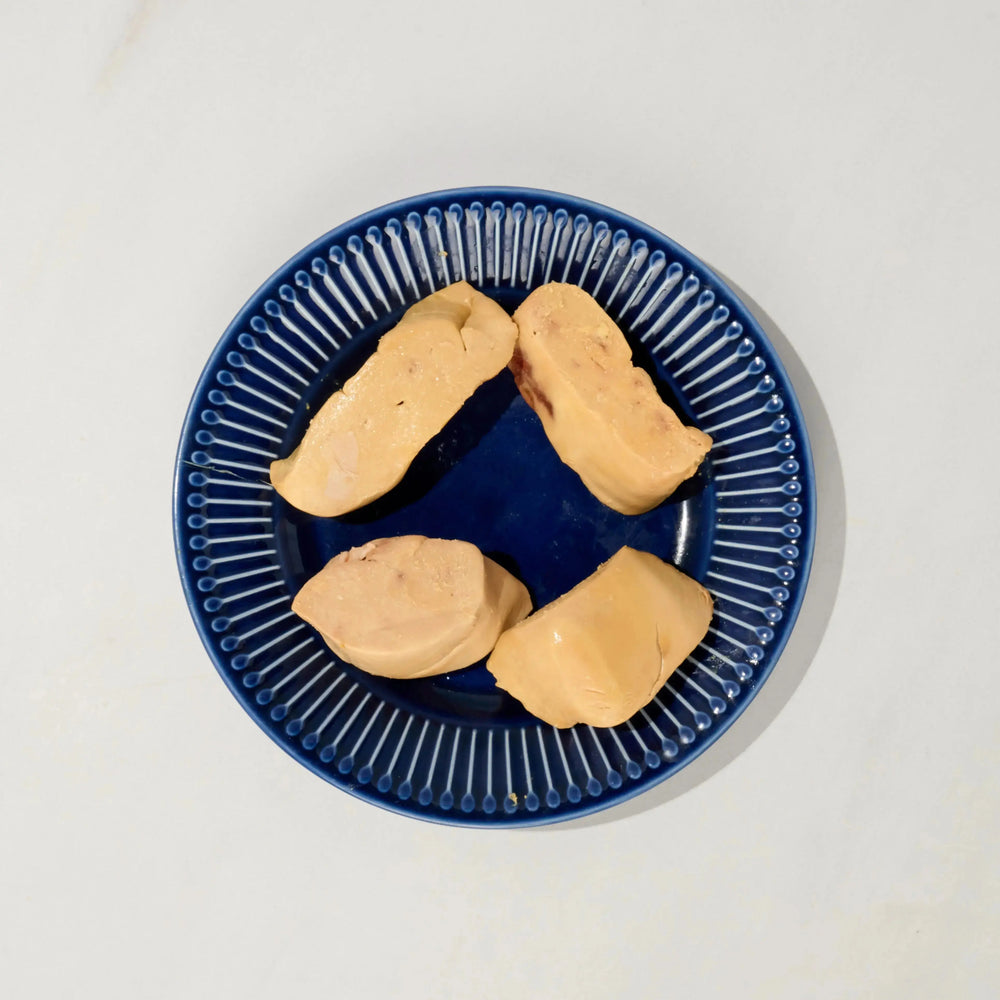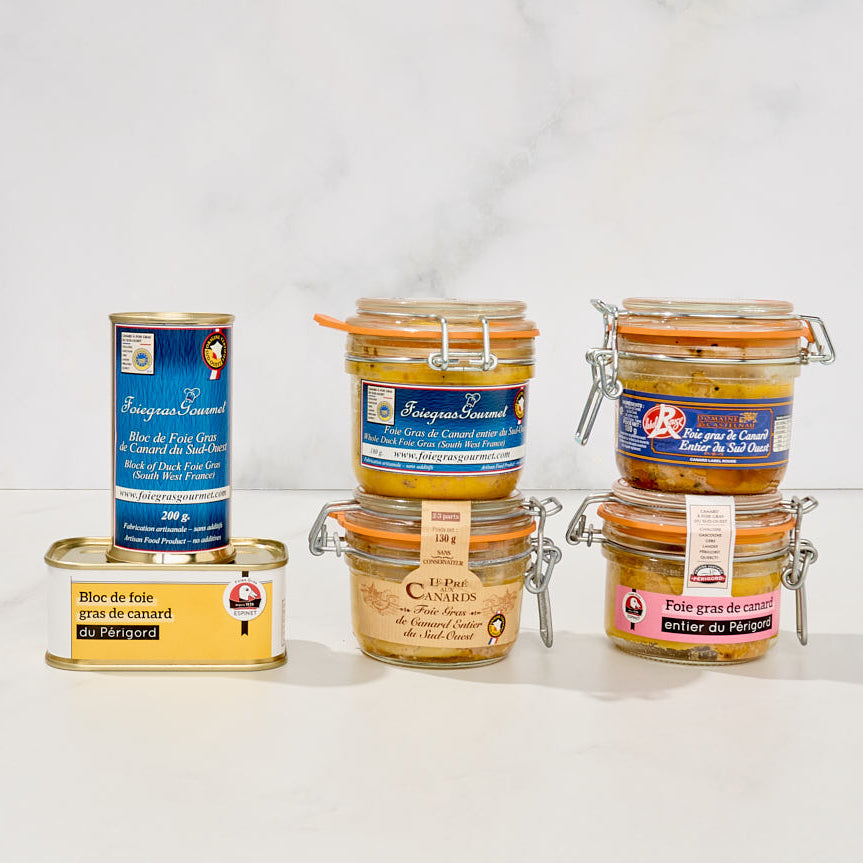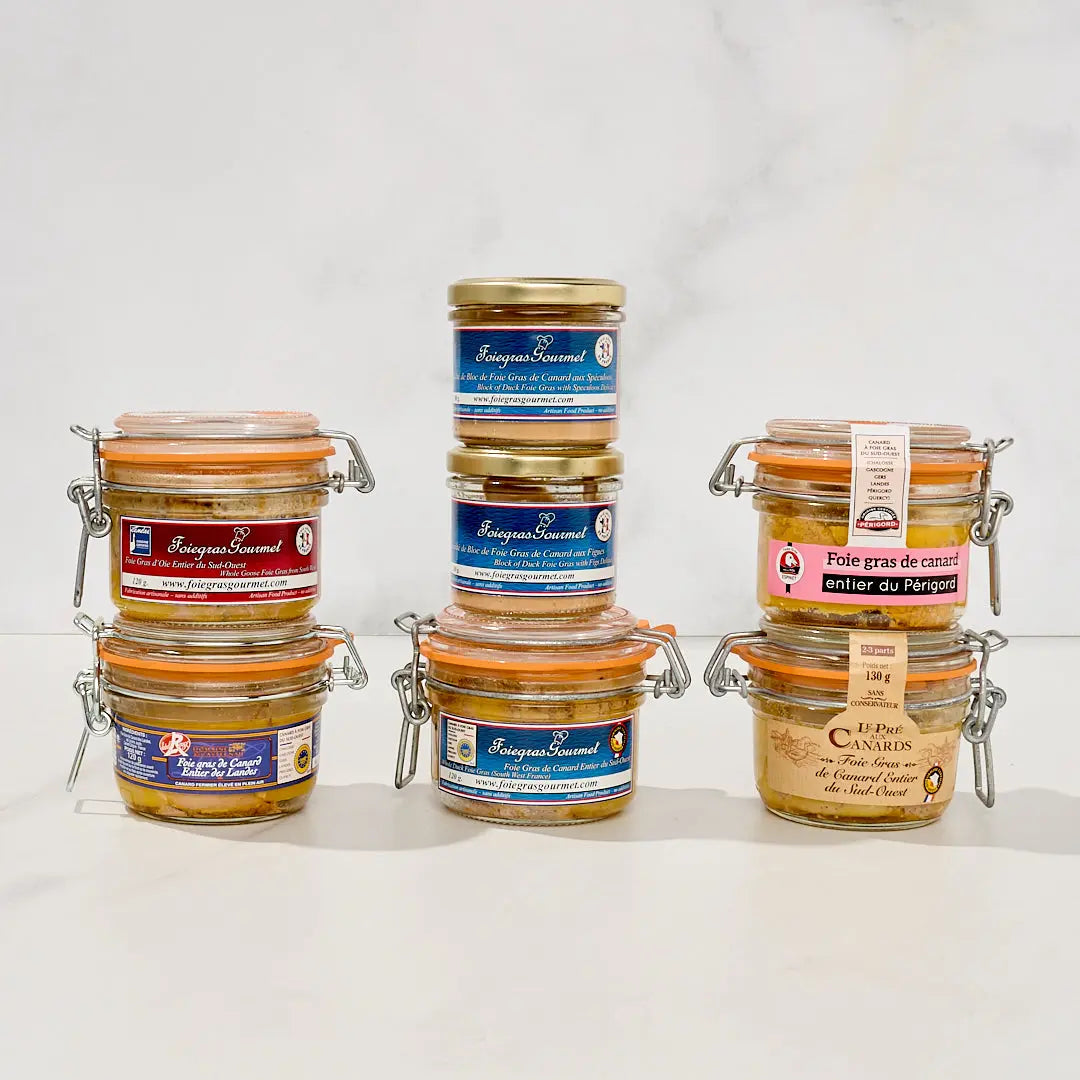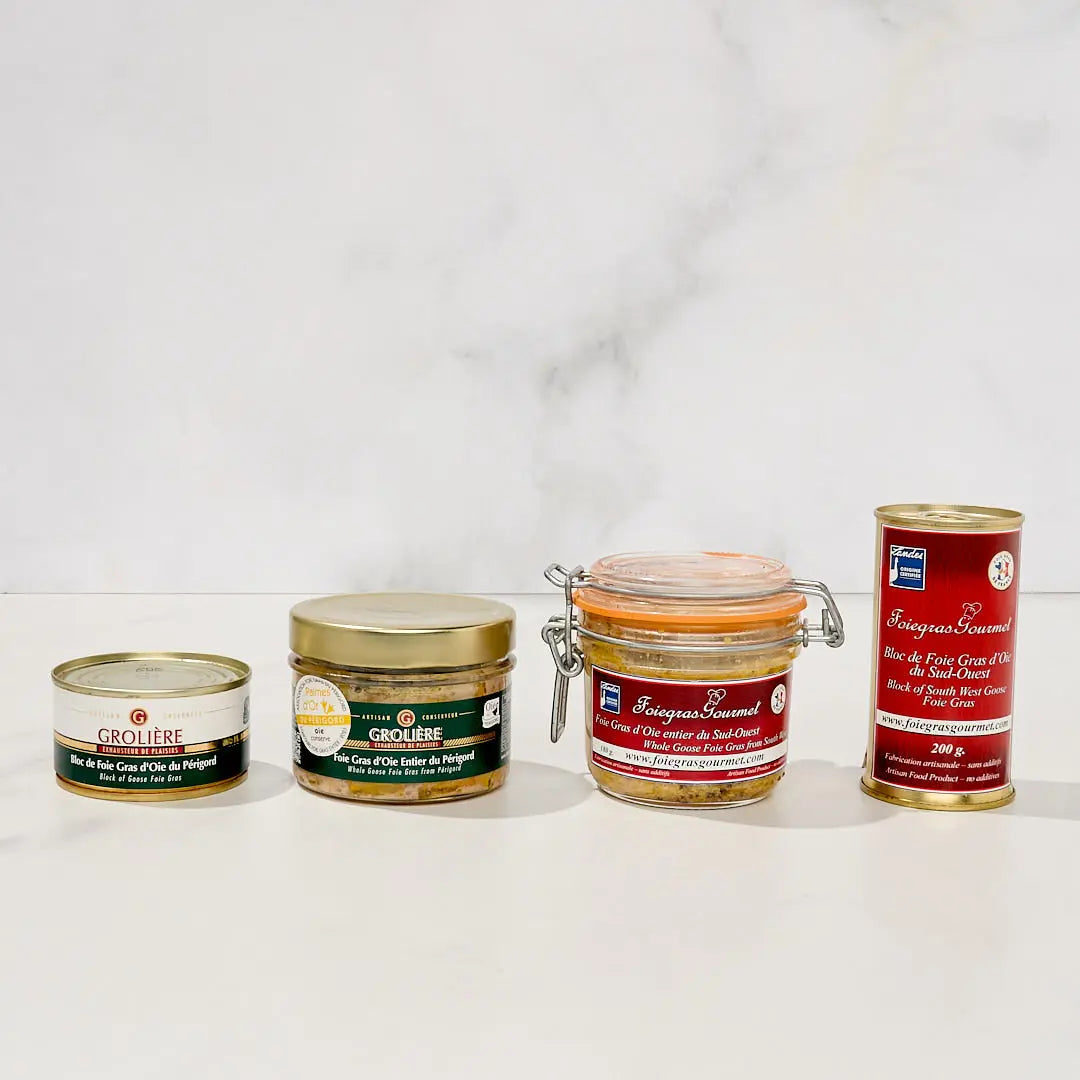
What's foie gras?
Integral to French cultural and gastronomic heritage, foie gras is the liver of specially fattened ducks or geese. These duck livers are a table delicacy, especially in the form of a paste (pâté de foie gras).
Duck Foie Gras is the favorite dish of the French and can be found in all the best French restaurants, both in France and abroad. As an aperitif served on toast or as an appetizer in a salad, it is a dish that can be found throughout the year and is especially popular at Christmas and at New Year celebrations.
In France, whenever you wish to delight your guests, it is rare not to offer duck foie gras accompanied by a good wine.
Duck foie gras is the favorite delicacy
In the past, we French ate almost exclusively goose foie gras with its finer flavor and less of a tendency to melt when cooked. Today, the trend is towards duck foie gras, which is cheaper to produce and has a more pronounced flavor. 95% of foie gras production in France now involves ducks and the main reasons for this are economic (the production costs of duck foie gras are lower) and culinary. Duck foie gras is smaller in size and has a more robust flavor than goose foie gras.
The ethical production of foie gras is developing in the south west of France.
Production of duck foie gras exists in many countries, although it is in the south west of France where there is much traditional know-how that it has really developed.
The industry moved into other regions of France where intensive production methods were, unfortunately, introduced to reduce production costs and manufacture the lower cost foie gras that the hypermarkets offer their customers.
These ducks are raised using the same industrial processes as for poultry, such as chickens and turkeys, and they are force-fed in questionable ethical conditions.
Fortunately, in the South West, small family businesses and cooperatives (groups of breeders and producers) have chosen to preserve traditional methods, including primarily raising their ducks in large spaces, in the fields and in the open air, where they are fed on cereals.
In France, the law forbids individual cages and has banned violent force-feeding via metal tubes attached to the animals’ throats to produce fatty livers, a process tantamount to being tortured.
There remains an ethical debate around foie gras. The debate is mainly between industrial production and artisanal production where better consideration is given to the welfare of the animals. A charter with updated standards to which producers are required to adhere has recently been implemented.
Buy foie gras from the south west of france
Duck foie gras can be eaten cooked, either grilled in a pan with apple for example, or cold in a terrine recipe. Most often, foie gras is cooked and then sterilized which allows it to be stored for several years at room temperature.
This is the traditional method of preserving, as used by farmers in the South West who raised ducks and geese during the summer to be able to eat the meat of these birds during the winter and take advantage of its good fat to help them fight the cold of winter.
Our products all come from the South-West of France where the best foies gras are to be found! Discover new and wonderful flavors which marry well with chutneys, jams and wine.


